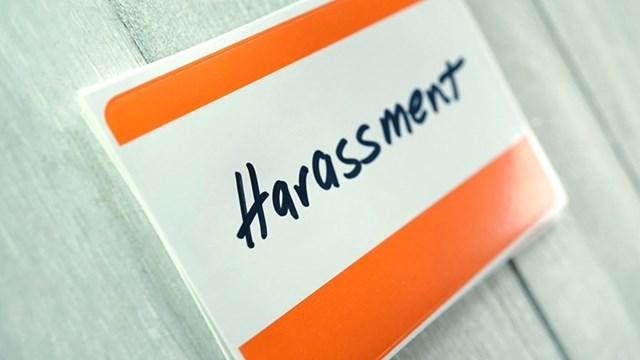
Q. Our building is discriminating against children. The board has just purchased very expensive lobby furniture ($6,000 per chair) with a white rug. It has now passed a rule that children must not play in the lobby. If they are “caught” playing, the first offense carries a fine of $100. The second offense is $200, etc.
The new rule doesn’t define “playing”; nor does it distinguish between noisy playing and quiet playing. In fact, the first damage to our new furniture was by a real estate agent! Since we now have many new families in our 400-unit building with children, this seems excessively harsh. How do we handle something like this? We only have three meetings a year (by decision of the board!).
—The Kids Are Alright
A. “Understanding the reach of rules imposed by a condominium board is very important to know whether or not a particular rule is discriminatory and/or in violation of the law,” says attorney Elyse Wolff of Greenbaum, Rowe, Smith & Davis, which has offices in Woodbridge, Roseland, and New York. “The Fair Housing Act, 42 U.S.C. 3601 et seq. (FHA), prohibits providers of housing from discriminating in connection with the sale, rental, and other housing-relating transactions against persons because of, among other things, their ‘familial status.’ Familial status includes families with at least one child under the age of 18. Depending upon the wording of the new rule that your association board has adopted, it may be in violation of the FHA. For example, if the rule specifically prevents ‘children’ from playing in the newly renovated lobby as opposed to ‘no playing’ in general (applicable to both adults and children), then the rule may be in violation of the FHA. If the rule does not address adults and children equally, unless it is a health and safety based rule such as the use of exercise equipment or supervision while swimming, or unless your community is an age-restricted community (which it does not sound like it is), then the rule may be considered discriminatory. The fact that the furniture was already damaged by an adult is a perfect example as to why rules should not single out children.
“If the definition of ‘playing’ is unclear, then you have the right to ask for an explanation. If the board is unwilling to provide you with such an explanation, then your association should have an Alternative Dispute Resolution (ADR) policy in place which you should take advantage of. Through that process you will hopefully get a better understanding of the meaning of the term. Pursuant to the Condominium Act, N.J.S.A. 46:8B-14(k), every association is required to offer ‘a fair and efficient procedure for the resolution of housing-related disputes.’ ‘Housing-related disputes’ is broadly defined and would encompass disputes surrounding this new rule. If your association does not have an ADR policy, you should make them aware that having one is a requirement.
“If it becomes clear either by way of communication from the board or through enforcement of the new rule that the definition of ‘playing’ is extreme and resulting in fines for children merely being in the lobby reading, talking, quietly having fun with small toys that are unlikely to cause damage, or simply waiting for a parent who is getting the mail or speaking with a fellow resident, then the rule should be challenged as unreasonable and discriminatory under the FHA first through the ADR process, and then, if necessary, in a court of law.
“In addition, the fines seem excessive and not proportionate to the violation. If furniture is damaged, then, depending upon the wording of your association’s bylaws and/or master deed, it is likely that the cost to repair the damage will be assessed to the owner who caused or whose child or guest caused the damage. Therefore, there is no reason for the fines for ‘playing’ to be so high. Fines serve as a deterrent but they must be fair and reasonable. The Condominium Act, N.J.S.A. 46:8B-15(f) states that fines ‘shall not exceed the maximum monetary penalty permitted to be imposed for a violation or continuing violating under section 19 of the “Hotel and Multiple Dwelling Law.”’ N.J.S.A. 55:13A-19 of the Hotel and Multiple Dwelling Law states that fines cannot be more than $500 for a single violation. Although the fine schedule that you have set forth appears on its face to comply with the law (up to the fifth violation), based on the fact that the violation of ‘playing’ is minimal and of no harm to anyone or any condominium property (since any damage would be separately assessed), anything over $50 per violation appears excessive.
“Since you only have three meetings each year, it is best if you move forward with ADR and ask the board to address your concerns. If ADR proves unsuccessful, then you have the right to challenge the rule in a court of law. As an aside, you mentioned that you only have three meetings each year by decision of the board. If your association bylaws require monthly or quarterly meetings, then the board would not have the ability to reduce the number of meetings without first amending the bylaws, which requires a vote of the membership. Although the Non-Profit Corporation Act only requires annual or biennial meetings of members (N.J.S.A. 15A:5-2) and it is unclear as to what type of meeting you are referring to, you should check your bylaws to make sure that the proper number of meetings are being held.”









Leave a Comment